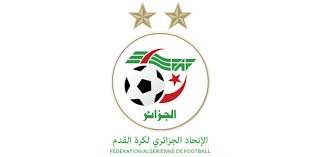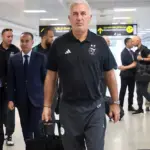FAF’s media strategy under scrutiny

The Algerian Football Federation (FAF), under the leadership of Walid Sadi, has come under fire for its unconventional media management practices. Information relating to the Federation’s activities has been frequently leaked to a select group of friendly media outlets. This has raised eyebrows and questions about the integrity and transparency of the Federation’s communications.
Since Sadi’s team took over, there has been a notable trend of releasing information to preferred media contacts first.
These insiders then monetize the information, often using it to spin narratives that may not always align with the truth.
This bypasses official communication channels and absolves the Federation of direct responsibility for any backlash.
It also allows the Federation to test the waters with controversial ideas, without committing to them publicly.
One journalist, who has become notorious for his biased reporting, once claimed that Sadi acted like an editor-in-chief, distributing “biscuits” of information when he was merely a courier for his mentor, Mohamed Raouraoua.
This close relationship between the Federation and certain journalists has led to a surge of misinformation and biased reporting.
Many journalists have transitioned to becoming YouTubers, using their platforms to spread propaganda.
Dominique Wolton, research director at the CNRS in France and founder of the international journal Hermès, has highlighted that while propaganda can be effective, it is often dangerous and not always guaranteed to succeed.
This point is echoed by some journalists who have acknowledged the close ties between themselves and FAF officials.
One journalist admitted on a private TV channel that the secretary general of the FAF is more than a friend, describing him as a “brother.”
This journalist now acts as the Federation’s de facto public relations officer.
This cozy relationship explains the proliferation of false information and manipulated data. These media allies use their platforms to pressure officials and achieve specific goals.
Former FAF president Charaf-Eddine Amara recently addressed this issue in a Facebook post.
He noted that these practices are often used to enhance the Federation’s image and portray its leaders as indispensable, while undermining potential rivals ahead of the next mandate period (2025-2029).
The current media strategy seems to focus on deflecting attention from real issues plaguing Algerian football, such as compliance with statutes, which could become problematic in the long run.
This strategy appears designed to weaken adversaries and increase resistance to counter-powers, which YouTubers adept at contradiction often support.
Former Minister of Youth and Sports, Abdelraouf Bernaoui, recently commented on this trend.
He observed that YouTubers, who have organized themselves and conduct real-time monitoring and fact-checking, are increasingly competing with traditional journalists.
These YouTubers often boast higher viewership and engagement statistics compared to conventional media channels, which are gradually losing credibility.
In summary, the FAF’s current media strategy under Walid Sadi has sparked significant controversy.
The close ties between the Federation and select journalists, the spread of misinformation, and the rise of YouTubers as credible alternatives to traditional media all contribute to a complex and often contentious media landscape in Algerian football.




